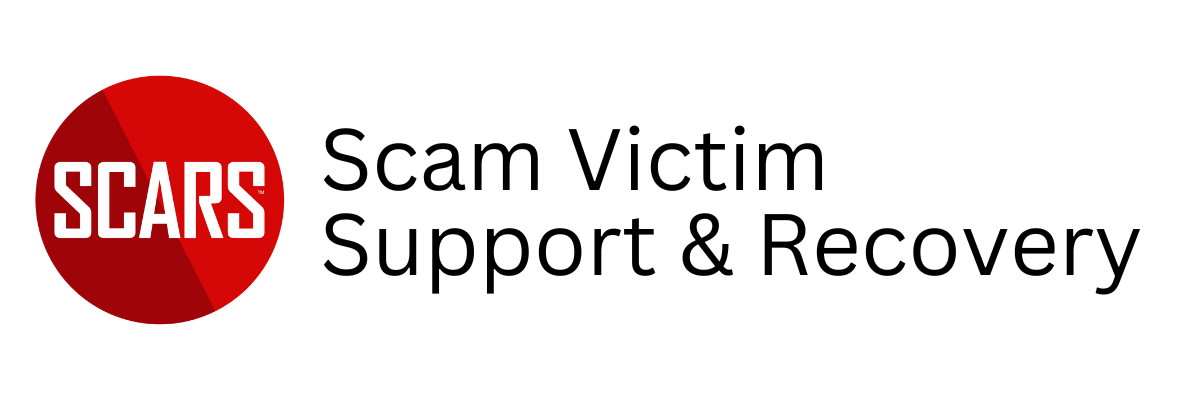The Paradox Of Relationship Scams – Another Perspective
Another Way of Thinking About Relationship Scams from a Paradoxical Viewpoint!
Primary Category: Recovery Psychology
Author:
• Tim McGuinness, Ph.D., DFin, MCPO, MAnth – Anthropologist, Scientist, Polymath, Director of the Society of Citizens Against Relationship Scams Inc.
About This Article
Relationship scams are full of paradoxes that highlight the complex and contradictory nature of fraud. Victims are ensnared through a blend of trust and deception, where they build deep emotional connections with scammers who appear benevolent but are driven by financial greed.
This trust, intended to provide security, is paradoxically the tool of their exploitation. Similarly, scammers create a sense of empowerment and safety in their victims, encouraging bold decisions and enabling growth, only to disempower and manipulate them, leading to financial and emotional ruin.
The juxtaposition of perceived intimacy and underlying exploitation, validation and deception, and the transition from perceived support to actual sabotage further illustrate the intricate manipulation at play.
These paradoxes reveal the sophisticated psychological tactics that make relationship scams profoundly deceptive and traumatizing, leaving victims in a state of confusion, betrayal, and long-lasting psychological turmoil.
Understanding these contradictions is important in recognizing and combating the insidious nature of such fraud.

The Paradoxical Nature of Relationship Scams and Fraud
Every Relationship scam is a Paradox, and most forms of fraud are inherently paradoxical, blending elements that seem logically mutually exclusive and creating a web of contradictions that ensnare victims.
At the heart of these scams is the paradox of trust versus deception. Victims are led to believe in the authenticity and benevolence of the scammers, building a deep sense of trust and emotional connection. This trust is paradoxically the very tool used to deceive them, as the scammers’s true intent is to manipulate and exploit. The scam victim’s reliance on the scammers for emotional support and companionship is starkly contrasted by the scammers’s goal of financial gain, creating a complex dynamic where care and betrayal coexist.
Furthermore, relationship scams embody the paradox of empowerment versus disempowerment. Scammers often make their victims feel empowered, encouraging them to take bold steps or make significant decisions. This perceived empowerment, however, is a facade designed to disarm the victim and lower their defenses. In reality, each decision guided by the scammers leads the victim deeper into a trap, ultimately stripping them of control over their agency and autonomy, their finances, and their emotional well-being. This duality of perceived growth and actual regression highlights the intricate manipulation at play in these crimes, where victims feel they are advancing towards a better future while they are, in fact, being led into ruin.
These paradoxes reveal the sophisticated and deeply psychological tactics employed in scams, making them both profoundly deceptive and devastatingly effective. It is in the nature of the paradox that psychological trauma develops.
Observable Paradoxes of Relationship Scams
Several paradoxes can be observed in relationship scams and the experiences of scam victims. These paradoxes highlight the complex and contradictory nature of the dynamics involved in almost all scams and fraud.
Trust vs. Deception Paradox:
Trust: For a relationship scam to succeed, the scammers must establish a deep sense of trust with the victim. The victim feels a strong emotional connection and believes in the authenticity of the relationship.
Deception: Despite the trust that is built, the entire relationship is based on deception. The victim’s trust is exploited, revealing the paradox of feeling secure in a relationship that is fundamentally fraudulent.
Empathy vs. Exploitation Paradox:
Empathy: Scammers often display a high level of empathy and understanding, listening to the victim’s problems and providing emotional support. This creates a bond and a sense of being cared for.
Exploitation: This perceived empathy is weaponized against the victim. The scammers use the information shared by the victim to manipulate and exploit them, turning genuine emotional support into a tool for deception.
Vulnerability vs. Resilience Paradox:
Vulnerability: Victims are often targeted because of their vulnerabilities, such as loneliness, financial instability, or emotional distress. These vulnerabilities make them more susceptible to scams.
Resilience: Despite being exploited, many victims display remarkable resilience. They work to rebuild their lives, often becoming advocates for awareness and prevention, thus transforming their vulnerabilities into strengths.
Self-Blame vs. Victimization Paradox:
Self-Blame: Many victims of relationship scams blame themselves for falling prey to the scam, feeling they should have been more cautious or discerning.
Victimization: In reality, the victim is not at fault; they have been deliberately and skillfully manipulated by the scammers. The paradox lies in the victim feeling responsible for a situation where they were intentionally deceived by another.
Isolation vs. Community Paradox:
Isolation: Scammers often isolate their victims from friends and family, making them more dependent on the scammers for emotional and social needs.
Community: After the scam is exposed, victims often seek support from communities of other scam victims. They find support and strength in shared experiences, highlighting the paradox of moving from enforced isolation to seeking communal support.
Immediate Gratification vs. Long-term Consequence Paradox:
Immediate Gratification: Scammers promise immediate emotional or financial gratification to their victims, appealing to their desire for quick solutions or relationships.
Long-term Consequences: The result of falling for these scams is often long-term financial loss, emotional trauma, and trust issues, contrasting sharply with the initial promise of quick satisfaction.
Investment vs. Loss Paradox:
Investment: Victims often invest significant time, emotions, and sometimes money into the relationship, believing it will yield positive outcomes.
Loss: Despite their substantial investment, they end up with emotional trauma and financial loss, highlighting the paradox of investing in something that ultimately depletes their resources.
Hope vs. Despair Paradox:
Hope: Scammers instill hope in their victims, promising a better future, love, or financial gain.
Despair: When the scam is revealed, this hope turns into despair as victims realize that their aspirations were based on lies.
Security vs. Danger Paradox:
Security: Victims often feel a sense of security in the relationship, believing they are protected and cared for by the scammers.
Danger: In reality, they are in a dangerous situation where their personal information, emotions, and finances are at very high risk.
Autonomy vs. Control Paradox:
Autonomy: Victims might believe they are making autonomous decisions based on the scammers’s guidance and support.
Control: In truth, the scammers is manipulating their choices and controlling their actions, undermining their sense of autonomy.
Intimacy vs. Exploitation Paradox:
Intimacy: Victims often experience a sense of intimacy, sharing personal details and deep emotions with the scammers.
Exploitation: This intimacy is false and exploited by the scammers to manipulate and deceive the victim, using their vulnerabilities against them.
Validation vs. Deception Paradox:
Validation: Scammers frequently validate their victims’ feelings and experiences, making them feel valued and understood.
Deception: This validation is part of the deception strategy which invalidates their feelings, designed to lower the victim’s defenses and make them more susceptible to manipulation.
Empowerment vs. Disempowerment Paradox:
Empowerment: Scammers often make victims feel empowered by encouraging them to make bold decisions or take control of their lives.
Disempowerment: These actions ultimately lead to the victim’s disempowerment as they lose control over their finances and emotional well-being.
Confidentiality vs. Exposure Paradox:
Confidentiality: Victims are often assured that their personal information and secrets are safe with the scammers.
Exposure: In reality, this information is used against them or sold to others, exposing them to further harm.
Presence vs. Absence Paradox:
Presence: Scammers create a strong sense of presence in the victim’s life, often being in constant communication.
Absence: Once the scam is complete, the scammers disappear, leaving a void and a sense of abandonment in the victim’s life.
Support vs. Sabotage Paradox:
Support: Victims often feel supported by the scammers, who offer advice and assistance.
Sabotage: This support is actually sabotage, as the scammers’s true intent is to destabilize the victim for their own gain.
Generosity vs. Greed Paradox:
Generosity: Scammers may initially appear generous, giving gifts or making small financial contributions to the victim.
Greed: Their ultimate goal is driven by greed, aiming to extract much larger sums from the victim over time.
Attention vs. Neglect Paradox:
Attention: Victims often receive an abundance of attention from the scammers, which makes them feel special and valued.
Neglect: Once the scammers have achieved their goal, the victim is neglected and discarded, leaving them to deal with the fallout alone.
Guidance vs. Misguidance Paradox:
Guidance: Scammers often pose as guides or mentors, offering advice and direction to the victim.
Misguidance: The guidance is actually misguidance, leading the victim towards actions that benefit the scammers and harm the victim.
Growth vs. Regression Paradox:
Growth: Victims may believe they are growing personally or financially through the relationship with the scammers.
Regression: In reality, they are regressing, losing money, emotional stability, and sometimes even relationships with others who could provide genuine support.
Summary
These paradoxes illustrate the intricate and often contradictory experiences of scam victims, shedding light on the complexity of human emotions and relationships in the context of manipulation and deceit. They provide a different perspective on the deception and challenges that every victim faces. Understanding these paradoxes is crucial for developing effective support and prevention strategies for those affected by relationship scams.
-/ 30 /-
What do you think about this?
Please share your thoughts in a comment below!
More Relationship Scam Paradox Related Information:
- People Often Cannot Recognize That They Have Depression – 2024 (scamsnow.com)
- Desperation – One of Many Normal Scam Victims’ Responses To Fear – 2024 (scamsnow.com)
- The Relationship Between Pain and Pleasure In Scam Victims – 2024 (scamsnow.com)
- Are You A Serial Scam Victim? Do You Know One? – 2024 (scamsnow.com)
- The Similarity/Attraction Theory And Relationship Scams – 2024 (scamsnow.com)
- Cognitive Bias: Mere Exposure Effect Bias – 2024 (scampsychology.org)
- Cognitive Bias: Just-World Bias (scampsychology.org)
- SCARS MANUAL OF COGNITIVE BIASES (scampsychology.org)
- SCARS MANUAL OF SCAM PSYCHOLOGY
Statement About Victim Blaming
SCARS Institute articles examine different aspects of the scam victim experience, as well as those who may have been secondary victims. This work focuses on understanding victimization through the science of victimology, including common psychological and behavioral responses. The purpose is to help victims and survivors understand why these crimes occurred, reduce shame and self-blame, strengthen recovery programs and victim opportunities, and lower the risk of future victimization.
At times, these discussions may sound uncomfortable, overwhelming, or may be mistaken for blame. They are not. Scam victims are never blamed. Our goal is to explain the mechanisms of deception and the human responses that scammers exploit, and the processes that occur after the scam ends, so victims can better understand what happened to them and why it felt convincing at the time, and what the path looks like going forward.
Articles that address the psychology, neurology, physiology, and other characteristics of scams and the victim experience recognize that all people share cognitive and emotional traits that can be manipulated under the right conditions. These characteristics are not flaws. They are normal human functions that criminals deliberately exploit. Victims typically have little awareness of these mechanisms while a scam is unfolding and a very limited ability to control them. Awareness often comes only after the harm has occurred.
By explaining these processes, these articles help victims make sense of their experiences, understand common post-scam reactions, and identify ways to protect themselves moving forward. This knowledge supports recovery by replacing confusion and self-blame with clarity, context, and self-compassion.
Additional educational material on these topics is available at ScamPsychology.org – ScamsNOW.com and other SCARS Institute websites.
-/ 30 /-
What do you think about this?
Please share your thoughts in a comment below!
SCARS LINKS: AgainstScams.org RomanceScamsNOW.com ContraEstafas.org ScammerPhotos.com Anyscam.com ScamsNOW.com
reporting.AgainstScams.org support.AgainstScams.org membership.AgainstScams.org donate.AgainstScams.org shop.AgainstScams.org
youtube.AgainstScams.org linkedin.AgainstScams.org facebook.AgainstScams.org
TABLE OF CONTENTS
CATEGORIES
![NavyLogo@4x-81[1] The Paradox Of Relationship Scams - Another Perspective - 2024](https://scamsnow.com/wp-content/uploads/2025/04/NavyLogo@4x-811.png)
ARTICLE META
Important Information for New Scam Victims
- Please visit www.ScamVictimsSupport.org – a SCARS Website for New Scam Victims & Sextortion Victims.
- SCARS Institute now offers its free, safe, and private Scam Survivor’s Support Community at www.SCARScommunity.org – this is not on a social media platform, it is our own safe & secure platform created by the SCARS Institute especially for scam victims & survivors.
- SCARS Institute now offers a free recovery learning program at www.SCARSeducation.org.
- Please visit www.ScamPsychology.org – to more fully understand the psychological concepts involved in scams and scam victim recovery.
If you are looking for local trauma counselors, please visit counseling.AgainstScams.org
If you need to speak with someone now, you can dial 988 or find phone numbers for crisis hotlines all around the world here: www.opencounseling.com/suicide-hotlines
Statement About Victim Blaming
Some of our articles discuss various aspects of victims. This is both about better understanding victims (the science of victimology) and their behaviors and psychology. This helps us to educate victims/survivors about why these crimes happened and not to blame themselves, better develop recovery programs, and help victims avoid scams in the future. At times, this may sound like blaming the victim, but it does not blame scam victims; we are simply explaining the hows and whys of the experience victims have.
These articles, about the Psychology of Scams or Victim Psychology – meaning that all humans have psychological or cognitive characteristics in common that can either be exploited or work against us – help us all to understand the unique challenges victims face before, during, and after scams, fraud, or cybercrimes. These sometimes talk about some of the vulnerabilities the scammers exploit. Victims rarely have control of them or are even aware of them, until something like a scam happens, and then they can learn how their mind works and how to overcome these mechanisms.
Articles like these help victims and others understand these processes and how to help prevent them from being exploited again or to help them recover more easily by understanding their post-scam behaviors. Learn more about the Psychology of Scams at www.ScamPsychology.org
SCARS INSTITUTE RESOURCES:
If You Have Been Victimized By A Scam Or Cybercrime
♦ If you are a victim of scams, go to www.ScamVictimsSupport.org for real knowledge and help
♦ SCARS Institute now offers its free, safe, and private Scam Survivor’s Support Community at www.SCARScommunity.org/register – this is not on a social media platform, it is our own safe & secure platform created by the SCARS Institute especially for scam victims & survivors.
♦ Enroll in SCARS Scam Survivor’s School now at www.SCARSeducation.org
♦ To report criminals, visit https://reporting.AgainstScams.org – we will NEVER give your data to money recovery companies like some do!
♦ Follow us and find our podcasts, webinars, and helpful videos on YouTube: https://www.youtube.com/@RomancescamsNowcom
♦ Learn about the Psychology of Scams at www.ScamPsychology.org
♦ Dig deeper into the reality of scams, fraud, and cybercrime at www.ScamsNOW.com and www.RomanceScamsNOW.com
♦ Scam Survivor’s Stories: www.ScamSurvivorStories.org
♦ For Scam Victim Advocates visit www.ScamVictimsAdvocates.org
♦ See more scammer photos on www.ScammerPhotos.com
You can also find the SCARS Institute’s knowledge and information on Facebook, Instagram, X, LinkedIn, and TruthSocial
Psychology Disclaimer:
All articles about psychology and the human brain on this website are for information & education only
The information provided in this and other SCARS articles are intended for educational and self-help purposes only and should not be construed as a substitute for professional therapy or counseling.
Note about Mindfulness: Mindfulness practices have the potential to create psychological distress for some individuals. Please consult a mental health professional or experienced meditation instructor for guidance should you encounter difficulties.
While any self-help techniques outlined herein may be beneficial for scam victims seeking to recover from their experience and move towards recovery, it is important to consult with a qualified mental health professional before initiating any course of action. Each individual’s experience and needs are unique, and what works for one person may not be suitable for another.
Additionally, any approach may not be appropriate for individuals with certain pre-existing mental health conditions or trauma histories. It is advisable to seek guidance from a licensed therapist or counselor who can provide personalized support, guidance, and treatment tailored to your specific needs.
If you are experiencing significant distress or emotional difficulties related to a scam or other traumatic event, please consult your doctor or mental health provider for appropriate care and support.
Also read our SCARS Institute Statement about Professional Care for Scam Victims – click here
If you are in crisis, feeling desperate, or in despair, please call 988 or your local crisis hotline – international numbers here.
More ScamsNOW.com Articles
A Question of Trust
At the SCARS Institute, we invite you to do your own research on the topics we speak about and publish. Our team investigates the subject being discussed, especially when it comes to understanding the scam victims-survivors’ experience. You can do Google searches, but in many cases, you will have to wade through scientific papers and studies. However, remember that biases and perspectives matter and influence the outcome. Regardless, we encourage you to explore these topics as thoroughly as you can for your own awareness.

























![scars-institute[1] The Paradox Of Relationship Scams - Another Perspective - 2024](https://scamsnow.com/wp-content/uploads/2025/04/scars-institute1.png)

![niprc1.png1_-150×1501-1[1] The Paradox Of Relationship Scams - Another Perspective - 2024](https://scamsnow.com/wp-content/uploads/2025/04/niprc1.png1_-150x1501-11.webp)